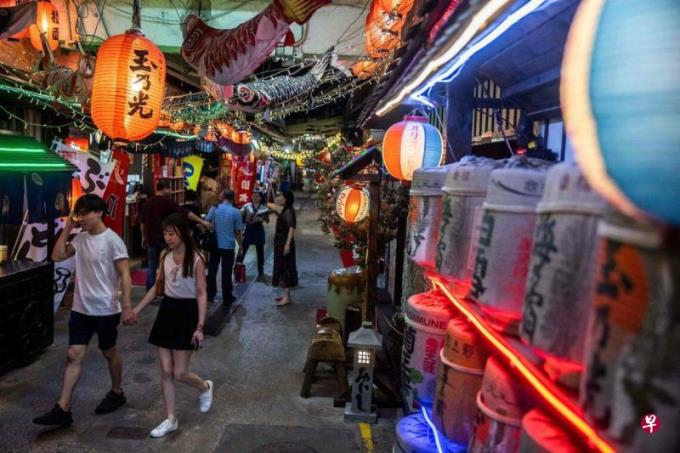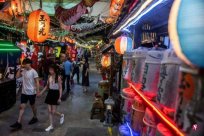
The Fukushima First Nuclear Power Station in Japan began to discharge the processed nuclear waste water into the sea on Thursday (August 24).As one of the most imported regions of Japan, many Japanese -style restaurants have been affected by incidents. Recently, business has decreased by 30 %. It is expected that it will fall again in the future.
The Hong Kong Government has banned the import of aquatic products from 10 counties in Japan from Thursday.Many Hong Kong people have said that in the short term, they will not eat aquatic products in any county in Japan for the time being, and they have changed to other places such as Norway imports.Some Hong Kong people said that although they are more worried about the safety of Japanese aquatic products, they will continue to eat fruits from Japan.
As for Hong Kong's Japanese -style department store supermarkets, most of them have the source of seafood on shelves and packaging.In the chain Japanese supermarket in a large shopping mall in Kwun Tong, there are still ingredients sold in Japan, and some salmon and other fish sashimi boxes indicate "Japanese direct delivery" or "direct delivery".Some counters selling salmon stated in the promotional banner that it was "Norwegian salmon."
Huang Jiahe, the president of the Hong Kong Catering Association, said in an interview with Lianhe Morning Post that there are nearly 18,000 restaurants in Hong Kong, of which about 1,800 are Japanese -style restaurants.The information of Japanese nuclear wastewater was fermented for a while, and the business of many Japanese -style restaurants was affected, and it had fallen by 20 % to 30 % earlier.
He pointed out that Japan began to discharge Fukushima nuclear wastewater into the sea on Thursday, causing more concerns about Hong Kong people. It is expected that the business of Japanese restaurants will fall again in the future.If the Hong Kong government has no excessive standards for imported Japanese seafood testing in the next month, the restaurant business is expected to rise. "But Japan is a long -term discharge of nuclear waste water, huge emissions and long emissions cycles make the whole thing unpredictable.High, it is difficult to say how long the long -term impact on the Hong Kong catering industry is great. "
The Huang family and admitted that the industry has made the worst plan, and has begun to find alternatives to Japan's seafood around the world earlier; there are also some Japanese -style restaurants that have transformed, and there will be a number of restaurants in the future.
In addition, Japan is a popular tourist spot in Hong Kong people. The Executive Director of the Travel Agency, which is dedicated to Japan, revealed that citizens who register for the Japanese group on Wednesday (August 23) have decreased by 20 %, but he believes this.It belongs to the "pain", and the number of people daily will reply to normal within two to three weeks.
As for whether travel agencies will adjust the dietary arrangements of the Japanese group in the future, such as not eating fish, Kukuka said that local Japanese ingredients need to pass the Japanese government test to prove that they are not polluted by nuclear and obtained a certificate before they will be supplied before they will be supplied.Give the restaurant; some restaurants will also do it by themselves. In addition, the restaurant not only entertain passengers, but also local people patronize. I believe that the person in charge will confirm that the ingredients do not contain radiation before they are supplied to the diners.
He emphasized that it is difficult to require all restaurants to explain whether the ingredients come from 10 inbound counties, and they can only trust each other.
The Hong Kong Internet media "Orange News", which has close relations with the China United Nations Office, published a comment article stating that although the Hong Kong Government currently only prohibits the import of aquatic products in 10 capitals in Japan, citizens' resistance to Japanese food is far less than that.It is foreseeable that the number of tourists in Japan will also decline in the future, and the imports of Japanese flights and other Japanese products will also be affected accordingly.The impact of Fukushima Nuclear Water on all walks of life in Hong Kong is far widespread than expected.
Article analysis, under this influence, the layoffs and unemployment tide in the Japanese trade and tourism -related industries will also follow.In addition to strengthening food safety control, the Hong Kong Government must also make a good plan for the results of these chain reactions, such as strengthening public publicity and increasing the degree of understanding and acceptance of water products in other regions.The supply channels have warned the industries that may be affected, urging it to adjust the business plan as soon as possible to reduce losses to avoid large -scale unemployment tide in the future.



